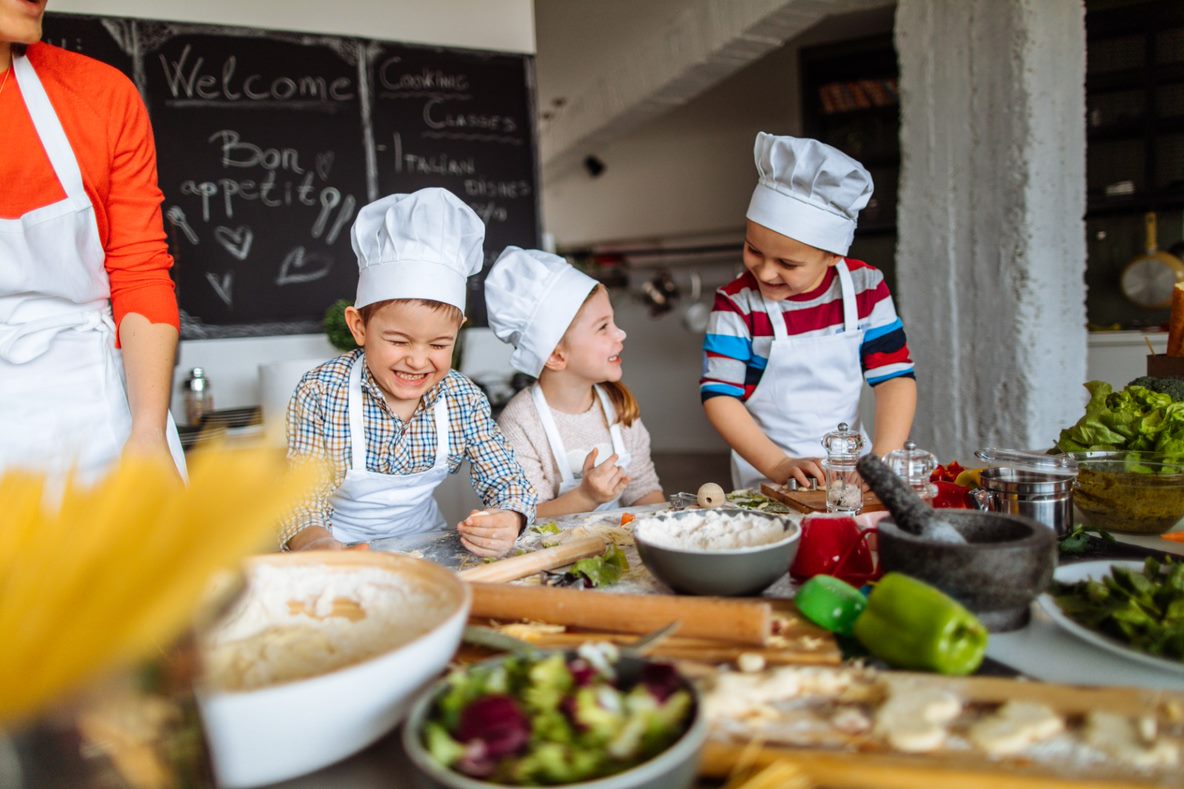Nestlé for Healthier Kids
Helping 50 million children lead healthier lives by 2030
Nestlé Canada Partners with Food Banks Canada
Since its beginning, Nestlé has been committed to helping parents and caregivers provide nutrition to their children. Announced globally in 2018, the Nestlé for Healthier Kids flagship initiative aims to help 50 million children lead healthier lives by 2030.
In 2019, Nestlé Canada launched the Nestlé for Healthier Kids initiative in Canada with a two-year partnership with Food Banks Canada. With more than 34% of food bank clients being children, we are proud to partner with Food Banks Canada to expand programs to reduce child hunger. Together, we will expand the Food Explorers Junior Rangers Program to 6-8 year olds, providing more children and their families with hands-on skills and knowledge for planning and cooking nutritious meals; and to deliver healthy food packs through the After the Bell Program, to children experiencing hunger during the summer months, when school based food programs are closed.
Since 2019, the After The Bell program has worked with over 180 food banks and community agencies in every province and territory and has distributed over 270,000 food packs!
About Food Banks Canada
Food Banks Canada is a national charitable organization dedicated to helping Canadians living with food insecurity. They support a network of Provincial Associations, Affiliate food banks, and food agencies that work at the community level to relieve hunger. Food Banks Canada's work is focused on three core areas: raising food and funds to share with our network; delivering programs and services to food banks to support their work; and influencing policy through research, awareness raising, and advocacy to find long term solutions to hunger.
Food Banks Canada provides national leadership to relieve hunger today and prevent hunger tomorrow in collaboration with the food bank network in Canada. For more information about Food Banks Canada and on how you can help in your community, please visit https://www.foodbankscanada.ca/.
About Food Explorers Junior Rangers Program
Food Banks Canada runs a nutrition education program called Food Explorers Junior Rangers Program to support parents and caregivers in teaching nutrition and cooking skills to their kids
The Food Explorers Program is a skills-based, healthy eating curriculum that teaches children (aged 6 to 8) who are already experiencing food insecurity, all about food, cooking and nutrition. Through Food Explorers, Food Banks Canada aims to educate and empower them to make positive long-term decisions about food. This is incredibly important as many of these children may already have pre-existing challenges with food and food insecurity and the program aims to help make a positive change.
The content is available to all 4,700 of Food Bank Canada’s agencies across the country.
As a key partner of ours, Food Banks Canada recognizes and firmly believes that everyone has the right to develop a positive relationship with food. For this reason, the curriculum is primarily focused on healthy patterns of eating rather than specific foods or nutrients, calories, or weight.
By supporting a national program like this, we’re able to support Canadians in need at the local level, through organizations that are already committed to making a difference.
Enabling healthier and happier lives
Nutrition is key to ensure a child’s healthy development. But as always, theory is one thing, practice is another. Encouraging kids to eat more veggies and fruits, ensuring their meals are as nutritious as possible and incorporating diversified protein sources – including plant-based options – can sometimes prove challenging for parents and caregivers.
Getting children involved in the preparation of meals leads them to adopt healthier eating habits – in short, their diet quality is higher, with children more inclined to eat fruits and vegetables. That’s why we encourage and advocate ‘togetherness’—when parents and kids come together in the kitchen.
Children who get involved in meal preparation have an increased preference for vegetables and an overall higher quality diet.



